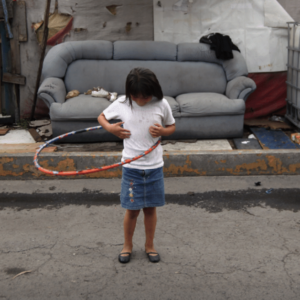Disentangling the Complexities of Bilingualism in Language and Literacy Skills
$22.00

Course Type: Live – 90 minutes ASHA Course Code: 7030 Diversity, Equity, and Inclusion in Education, Training, Service Delivery, and Public Policy
Many benchmark tests of language and literacy skills over-identify bilingual students as having problems because they do not take into account both languages. In states that implement universal screeners, this can result in massive over-identification of bilingual students as being at-risk in their educational endeavors. This session provides SLPs and related professionals with ways to equitably evaluate and support language and literacy skills in multilingual children by leverage information about a child’s language experiences.
Join Dr. Amy Pratt from the University of Cincinnati as she discusses how to leverage information about a child’s language experiences when administering and interpreting language and reading test scores. Participants will explore how to use assessment data to inform intervention.
Additional Information
| Population | Adult, Early Childhood, School Age |
|---|---|
| Duration | 1.5 hours |
| Credit | .15 Continuing Education Units |
| Topics | Diversity, Equity, & Inclusion (DEI), Exp/Rec Language |
| Format | Video |
Dr. Pratt is an assistant professor of Communication Sciences and Disorders at the University of Cincinnati. She is currently the principal or co-investigator on two federally funded grants that aim to improve assessment practices with Spanish-English bilingual children. Her research attempts to differentiate difficulties with language and reading that stem from an underlying disorder versus those that stem from emerging bilingualism. An important part of this work is the development of valid and equitable measures for use with children who are exposed to more than one language.
Financial — Dr. Pratt receives compensation for her consultation with the Multitudes: Dyslexia Screening project.
Non-financial — No relevant non-financial disclosure exists.
This talk addresses the intersection of language and reading disorders in children who are bilingual. The talk will be divided into four parts: (a) Theoretical underpinnings of language and reading disorders; (b) Current issues related to identification of language and reading disorders in children who speak more than language; (c) Leveraging of language assessments to diagnose a possible reading difficulty in bilinguals, and (d) The application of assessment results to inform intervention.
We will start by describing the current state of knowledge and of practice. First, we will acknowledge the high co-occurrence of language and reading disorders in children. We will discuss research that explores this comorbidity, focusing on the knowledge, skills, and processes that are common to both disorders. Next, we will describe the current identification practices that are in place for qualifying a child with a language and/or reading disorder in schools, critically evaluating the effectiveness of these practices for children who speak a language other than English at home. Current trends in data of special education status for English learners (including how they are both systematically over- and under-identified) will be discussed. After we have set this foundation, we will turn to ways that SLPs can help to mitigate these issues. We will discuss ways to improve the validity and reliability of language and reading assessments for English learners (in circumstances when the SLP shares a common home language with the student and when they do not). We will explore how the inclusion of language tests in screening may help to improve our identification accuracy of language-based reading disorders in bilingual children. Finally, we will conclude with a conversation about how to use assessment results to make decisions about intervention and instruction.
Participants will be able to:
• Describe the underlying knowledge, skills, and processes that are common to both language and reading disorders.
• Discuss trends in over- and under-identification of English learners in U.S. schools with language and reading disorders.
• Describe ways to improve the validity and reliability of language and reading assessment of bilingual children.
• Apply assessment results to interventions that target both language and literacy goals.
Time-Ordered Agenda
10 mins: Theoretical models of literacy
15 mins: Common foundations of language and reading disorders
10 mins: Application of models to bilinguals
15 mins: Current issues with identification practices
10 mins: Including language testing as a complement to traditional reading assessments
15 mins: Application of assessment results to inform intervention
15 mins: Moderated Q and A
Need CEUs?

 Share
Share
 Tweet
Tweet
 LinkedIn
LinkedIn
 Pin
Pin
 Email
Email





